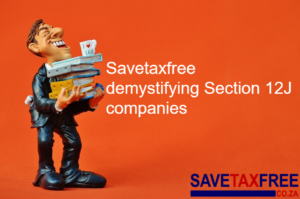South Africans urged to maximise tax savings before end of tax year
Related Articles
10 February 2016: Media Release
With just a few short weeks before the first tax-free investment year-end on 29 February, South Africans are urged to make full use of the tax-free savings and investment opportunities available, particularly in the face of rising costs and increased financial pressure that look set to continue in 2016.
Denver Keswell, senior legal advisor at Nedgroup Investments, says making smart use of the tax-saving incentives, introduced by government to encourage South Africans to save more, can have significant and positive long-term financial consequences. This applies to people already invested in tax-free products as well as anyone who has not yet considered tax-free investments, or even first-time investors.
“It’s around this time every year that people who are looking look to reduce their tax liability to the South African Revenue Service (SARS) as well as save towards their retirement, start doing calculations and consult with their financial planners. While one’s immediate financial position is always top of mind, we urge investors to seriously consider the longer-term benefits of maximising their allocations to tax-free investments in each tax year.
Keswell points to two particular tax-saving incentives introduced by Treasury in recent years.
“Contributions towards retirement annuities (RAs) and pension funds can be very effectively used, up to a certain limit, to reduce a personal tax liability to SARS. Furthermore, proposed tax changes and the introduction of tax-free investments provide even more incentives to ‘top-up’ contributions towards retirement funds and tax-free investments,” he says.
Tax tool 1: Tax-free investments
Tax-free investment offers each South African the opportunity to invest up to R 30 000 a year (with a lifetime limit of R 500 000) without paying any tax on interest, dividends or capital gains. “This means that once you have put your money in, you will not pay any tax and anything you make through your investment, you get out – essentially free money. Your money can also grow faster in a tax-free savings account compared to a regular savings account because you don’t pay tax on the investment return,” explains Keswell.
According to Keswell, tax-free investments have enjoyed positive uptake in the first year, although there is certainly room for improvement, given the benefits they offer.
Inflows into tax-free investments at Nedgroup Investments at end December 2015 were approximately R 57 million, approximately 2,610 investors. “Importantly, of those investors, most (1,895 investors) were new investors. So it’s clear that the tax-free products are attractive for first-time investors and therefore achieving the objective of encouraging more South Africans to save,” says Keswell.
Tax tool 2: Using an RA to reduce tax liabilities
Keswell explains that RA members have an additional chance to reduce their tax liabilities by maximising their RA contributions to ensure that they use the full tax contribution deduction that they are entitled to.
According to Keswell, currently, investors are entitled to deduct up to 15% of their net non-retirement funded income from their taxable income (27.5% of the higher of remuneration or taxable income from 1 March 2016).
“In essence it means that a business person who earns R1 000 000 a year and is not a member of a pension fund or provident can reduce their taxable income by up to R150 000. Assuming a tax rate of 41%, that is a tax rebate of R61 500 at the end of the tax year. This R61 500 that would otherwise be sitting with SARS, can now be used to pay for annual car payments or groceries or any other expenses.
It is for this reason that many RA members should consider ‘topping up’ their RA contributions if they are in a position to do so,” says Keswell.







